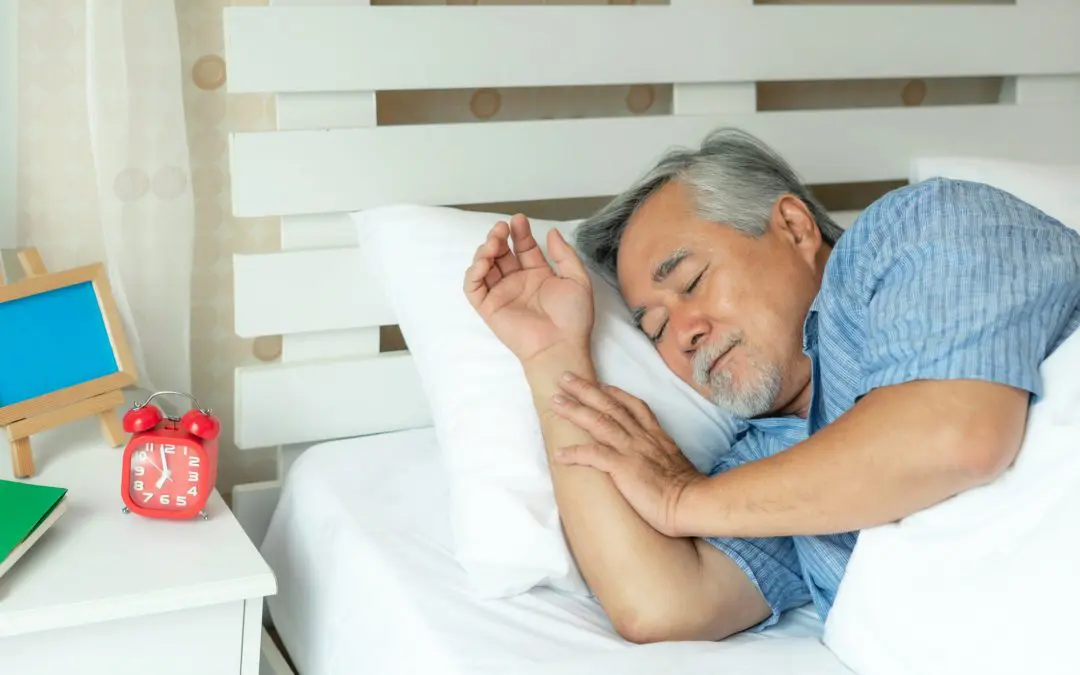Sleep is a crucial part of our overall health and well-being. As we age, the quality of our sleep can often decrease due to various factors such as health conditions, lifestyle changes, or simply the natural aging process. However, there are numerous ways older adults can improve their sleep quality. Here are the top ten tips for enhancing sleep quality in older adults.
Contents
1. Establish a Regular Sleep Schedule
Consistency is key when it comes to good sleep. Having a regular sleep schedule helps regulate your body’s internal clock, making falling asleep and waking up easier. Aim to go to bed and wake up at the same time every day, even on weekends. This way, your body will be better prepared for a good night’s rest.
2. Create a Restful Environment
A quiet, dark, and cool environment can promote better sleep. Consider using earplugs, an eye mask, or a white noise machine if necessary. Make sure your bedroom is well-ventilated, and your mattress and pillows are comfortable. By creating an environment that is conducive to good sleep, you can make your rest more enjoyable and restorative.
3. Limit Daytime Naps
Long daytime naps can interfere with nighttime sleep. If you choose to nap, limit yourself to about 20 to 30 minutes and make it during the mid-afternoon. This way, you won’t disrupt your regular sleep schedule or become overly tired at night.
4. Stay Active
Regular physical activity can help you fall asleep faster and enjoy deeper sleep. However, be mindful not to exercise close to bedtime as it might interfere with your sleep. Some exercises like stretching, yoga, or tai chi can help you relax in the evening and prepare your body for sleep.
5. Manage Worries
Stress and anxiety can cause insomnia. Techniques such as meditation, deep breathing, or progressive muscle relaxation can help clear your mind and prepare you for sleep. Don’t hesitate to talk to your doctor if you’re struggling with stress or anxiety.
6. Limit Light Exposure at Night
Exposure to light stimulates alertness. Try to limit your exposure to bright screens within one to two hours of your bedtime. Consider using a blue light filter on your devices in the evening. If you need light for reading, try using a low-wattage lamp or wearing an eye mask.
7. Be Mindful of What You Eat and Drink
Avoid large meals, caffeine, and alcohol close to bedtime. These can disrupt your sleep cycle and lead to poor sleep quality. Also, don’t go to bed hungry but don’t overindulge either. A light, healthy snack like yogurt or a banana can help you relax and improve your sleep.
8. Check Your Medications
Some medications can interfere with sleep. Review your medications with your doctor or pharmacist if you’re having trouble sleeping. This way, you can make sure your medications aren’t causing sleep issues and find alternatives if necessary.
9. Manage Chronic Conditions
Conditions like pain, depression, diabetes, or heart disease can interfere with sleep. If you have a chronic condition, make sure it’s well-managed to improve your sleep quality. Otherwise, talk to your doctor about treatment options that can help you sleep better at night.
10. Seek Professional Help
If you’ve tried these tips and are still struggling with sleep, it might be time to see a sleep specialist. They can evaluate your symptoms and find a treatment that works for you. Usually, older adults need more sleep than younger people. Make sure you’re getting enough rest to stay healthy and happy.
Remember, everyone’s sleep needs and challenges are different. What works for one person may not work for another. Finding a routine and strategies that suit your needs is essential. By implementing these tips, older adults can enhance their sleep quality, leading to improved health and a better quality of life.
What Are the Dangers of Not Getting Enough Sleep for Seniors?

Not getting enough sleep can have dangerous consequences for older adults, especially in terms of their overall health. Poor sleep quality can lead to a weakened immune system, increased risk of falls, high blood pressure, and even memory problems. It can also worsen existing medical conditions such as arthritis or depression. Additionally, insomnia increases the risk of accidents due to impaired judgment and slowed reaction times.
Seniors need to get adequate rest to maintain their health and well-being. If you’re having difficulty sleeping, make sure to talk to your doctor or a sleep specialist about strategies that can help improve your sleep quality.
What Are the Benefits of Good Sleep Quality for Seniors?
Good sleep quality can have a positive impact on seniors in many ways. It can help improve memory, reduce stress levels and anxiety, and boost the immune system. It can also aid in maintaining muscle mass, cognitive function, and overall physical health. Good sleep also helps seniors stay energized during the day, resulting in improved concentration.
Therefore, seniors should prioritize their sleep health to enjoy the many benefits of a good night’s rest. With the right strategies and lifestyle changes, older adults can achieve better sleep quality and improve their overall health.
Conclusion
Sleep is essential for overall health and well-being, especially as we age. These top ten tips can help older adults enhance their sleep quality, leading to improved physical and mental health. However, if you’re still having trouble sleeping after trying these strategies, make sure to seek professional help. With the right guidance, you can get the restful sleep your body needs.

